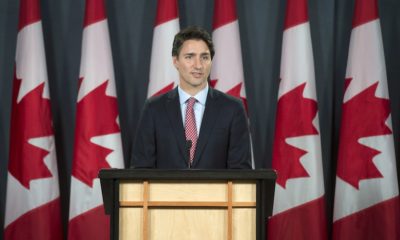The economy added 12,000 net new jobs in September, but the unemployment rate climbed by one-tenth of a percentage point to 7.1 percent as more people entered the labour force, Statistics Canada said Friday.
The gain in the overall number of jobs came due to a gain in part-time employment, offset by a drop in full-time jobs.
The number of part-time jobs increased by 74,000 in September, but full-time employment fell by 62,000.
The September jobs report was the last major piece of economic data before the federal election on Oct. 19.
The Bank of Canada has cut its key interest rate twice this year in a bid to help an economy that contracted in the first half of the year due in large part to the drop in oil prices.
The biggest mover in the September jobs report was the educational services sector which posted a loss of 51,000 jobs for the month, mostly in Ontario and Quebec.
Statistics Canada noted there have been a number of changes in the sector that could affect employment, including recent contract negotiations. The agency noted that before its seasonal adjustment the number of people working in the sector increased, but less than typically observed, resulting in the decline in the seasonally adjusted result.
The information, culture and recreation sector added 33,000 jobs last month, while the “other services” group added 22,000 jobs.
The number of self-employed increased by 31,000 in September, while public sector employment fell 29,000. The number of private-sector employees climbed by 10,000.
Regionally, British Columbia and Alberta both posted gains of 12,000 jobs, while Manitoba increased by 4,000.
However, Ontario saw a drop of 34,000 jobs in September as losses in full-time employment were partly offset by gains in part-time work. Quebec added 11,000.
The Canadian Press

 Forex3 weeks ago
Forex3 weeks ago


 Naira2 weeks ago
Naira2 weeks ago
 Billionaire Watch2 weeks ago
Billionaire Watch2 weeks ago




 Naira3 weeks ago
Naira3 weeks ago




 Naira2 weeks ago
Naira2 weeks ago




 Naira1 week ago
Naira1 week ago




 Naira4 weeks ago
Naira4 weeks ago




 Naira4 weeks ago
Naira4 weeks ago


















